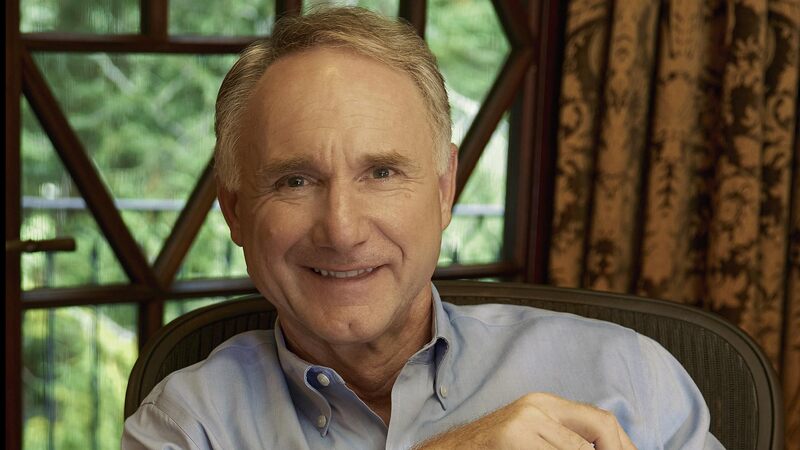You are viewing your 1 free article this month. Login to read more articles.
Dohle's legacy
Will the Dohle Book Defence Fund outlast the departure of PRH’s c.e.o.?
Where does Markus Dohle’s decision to stand down as worldwide c.e.o. of Penguin Random House in the wake of the company’s failure to acquire Simon & Schuster leave one of publishing’s most unusual political initiatives? In February of this year PEN America announced the Dohle Book Defence Fund, established in partnership with Dohle to mark PEN America’s centenary, its aim being "to combat, in real-time, the rising threats to freedom of speech and open discourse within communities nationwide".
Dohle pledged to give at least $100,000 of his own money every year for five years. Suzanne Nossel, chief executive of PEN America, told the New York Times that the money would be used to help cover expenses related to PEN’s efforts to fight book bans including consultants, lawyers and costs associated with public campaigns and media events.
One hopes that Dohle will maintain his pledge, even if such generosity becomes harder to bestow when you no longer have the salary of a top Bertelsmann executive to ease the burden. The HarperCollins union, the un-publisher-sounding Local 2110 United Auto Workers, says the average pay at the publisher is $55,000. This figure will be inflated by the salaries of those at the very top, so one can assume Dohle’s annual donation to the fund will be around the salaries of three members of staff. Would that those carrying the banners saying "Where the Wild Things are Underpaid" past the company’s offices could afford to do the same.
Dohle has said he hopes others will follow suit and contribute to the fund, but what does that mean?
So this pledge is impressive and something of a publishing first. Is there another individual in the book industry who has done anything similar? J K Rowling has given away millions to charity, but she is not a publisher. The nearest equivalent is arguably the British publisher and entrepreneur Paul Hamlyn, who died in 2001. His Hamlyn Foundation founded in 1987, has given many millions away to schemes to support "social change" and the creation of a "just and equitable society". Dohle and Hamlyn are loosely linked by background. Dohle was raised in Germany after the Second World War, and has said he grew up aware of “the dark times and the dark history of the country.” It was that same dark history of course, that led Hamlyn, whose father was a German Jew and whose surname was Hamburger, to arrive in the UK in 1933, aged seven, with his parents.
Dohle’s decision demonstrates the level of concern he feels about freedom of expression in the US. For example, it seems that Eighth Grade school teachers in Tennessee might be able to carry a gun at the weekend, but their classrooms are not allowed to stock Art Spiegelman’s graphic novel Maus because its contents were deemed “inappropriate”, according to a unanimous vote by a school board earlier this year.
Suzanne Nossel, c.e.o. of PEN America, said: “We’re dealing with new challenges and bans every week, and these efforts are enmeshed in a larger political battle over the narratives that are accessible in this country.”
Commenting on Dohle’s pledge at the time it was announced, Nossel said: “Given his background, Markus is deeply attuned to the dark sides that lurk within a society and how things can turn around quickly. With his support, PEN America is poised to continue leading the fight to uphold and protect the role of books in society.”
Dohle has said he hopes others will follow suit and contribute to the fund, but what does that mean? Would Hachette US’ Michael Pietsch make a similar contribution? What about Brian Murray, c.e.o. of strike-ridden HarperCollins? They may not admit it, but if they did contribute they might like their names on such a fund too – yet the idea of a Pietsch Book Defence Fund and a Murray Book Defence Fund, alongside the Dohle one, seems absurd. If Murray made such a move, with strike action still ongoing, it would lead to problems.
With regard to his decision to stand down, it seems that since Dohle led PRH’s bid to buy S&S he presumably felt that once that bid failed, his position was untenable.
PRH is a global company. Some might ask, why just focus on the US? Why not make a similar gesture of support for the Prix Voltaire, the freedom to publish award given by the International Publishers Association? In fairness, Random House Germany has supported this award in the past and no one individual or company can support everything. Dohle is parting day to day company with PRH, but in his advisory capacity with Bertelsmann he will continue to represent PRH on all the industry bodies on which he currently sits, among them the Association of American Publishers, the National Book Foundation and PEN America itself.
Soon after this piece went to press, Dohle confirmed that the Fund is his “family fund” and will continue. He said he will also increase his involvement on the above bodies and especially with PEN because he believes so deeply – personally and professionally – in its mission.
The establishment of the Dohle Book Defence Fund remains a publishing first and its establishment represents a little piece of book industry and freedom of expression history. As legacies go, one could do worse.

















